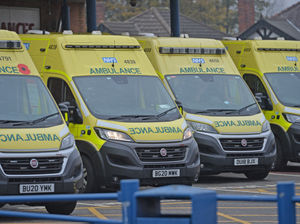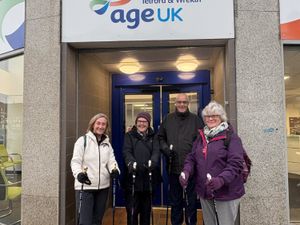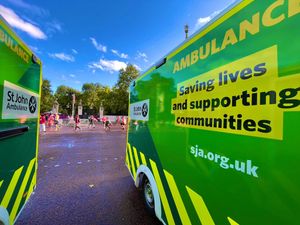Patient 'streaming system' to reduce A&E intake at Shropshire’s main hospitals
A patient 'streaming system' will reduce A&E intake at Shropshire’s main hospitals by directing some patients straight to wards, it is hoped.

In a report for the West Midlands Ambulance Service (WMAS) board, Head of Risk Matt Brown writes that a similar system has been successful in Walsall and a version is being developed for Royal Shrewsbury Hospital and Princess Royal Hospital.
Updating members on risks to the service and the wider health system, Mr Brown says long handover times at hospitals lie behind “several cases of severe patient harm” and there remains a “level of uncertainty” about the impact of the Omicron Covid-19 variant.
The WMAS directors will discuss his report at an extraordinary meeting next week.
Mr Brown writes the recruitment of “hospital ambulance liaison officers” has “increased provision and allows greater coverage and support at each site, often providing seven-day cover”.
He adds that there is “ongoing work ” with the Shrewsbury and Telford Hospital NHS Trust and University Hospitals Birmingham NHS Foundation Trust “to develop a ‘streaming system’ which allows ambulances to be screened and directed to other wards on arrival, not solely the emergency department”.
“This is to reduce footfall in ED and to spread resources across the acute site to promote more efficient offloading and reduce pressure in EDs,” Mr Brown writes.
“This work was prompted following Walsall Manor’s success in reducing handover delays with the streaming method.”
In a separate section of his report, covering on-site infection and staff sickness, Mr Brown acknowledges the emergence of the Omicron variant late last month and the current “level of uncertainty regarding the impact this will have in the UK and on our staff and patients”.
“At this time the national IPC [infection prevention and control] cell has confirmed there are no changes to IPC guidance regarding PPE, decontamination, etc,” he writes.
“However, the trust has reinforced its message regarding prolonged handovers and patient management as well as necessary precautions.
“This will be monitored accordingly.”
In another section, covering 111 and 999 call handling and ambulance dispatch, Mr Brown notes that the trust has been at level four of four-step “resource escalation action plan” since September 2021. It has also been at “surge level four” 31 times, “27 of these being in October and November, showing a continued and consistent increase over the recent months”.
“Unfortunately, there have been several cases where patient harm has occurred due to the awaiting of dispatch resulting in several SIs [serious incidents],” he writes.
“By having large numbers of incidents unallocated, undoubtedly the greatest risk is to patients in the community who cannot receive a timely and appropriate ambulance response. This is because of ambulances being unable to hand over their patient at hospital, preventing further deployment.”
The West Midlands Ambulance Service University NHS Foundation Trust board of directors will meet on Monday.





